
Hanuman Jayanti: A holy Festival with Endless Significance-हनुमान जयंती: अनंत महत्व वाला एक पवित्र त्योहार
Hanuman Jayanti is a Hindu festival celebrating the birth of the Hindu deity, and one of the protagonists of the Ramayana, Hanuman. The celebration of Hanuman Jayanti varies by time and tradition in each state of India. In most northern states of India, the festival is observed on the full-moon day of the Hindu month of Chaitra. In Karnataka, Hanuman Jayanti is observed on Shukla Paksha Trayodashi, during the Margashirsha month or in Vaishakha, while in a few states like Kerala and Tamil Nadu, it is celebrated during the month of Dhanu (called Margali in Tamil). Hanuman Jayanti is observed on Pana Sankranti in the eastern state of Odisha, which coincides with the Odia New Year.
Hanuman is regarded to be an ardent devotee of Rama, an avatar of Vishnu, widely known for his unflinching devotion.He is revered as a symbol of strength.
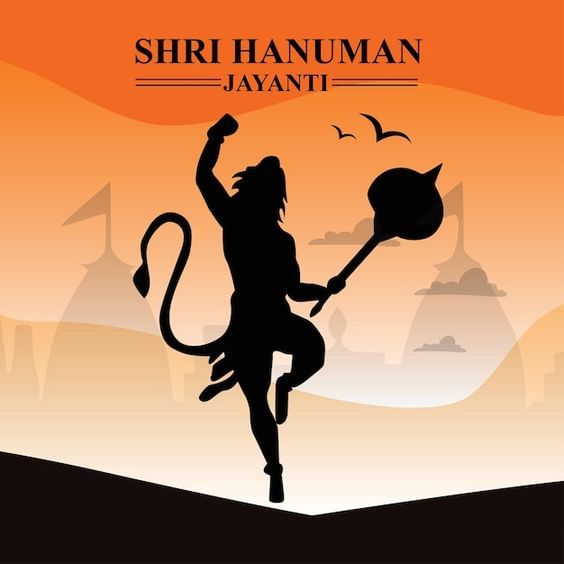 |
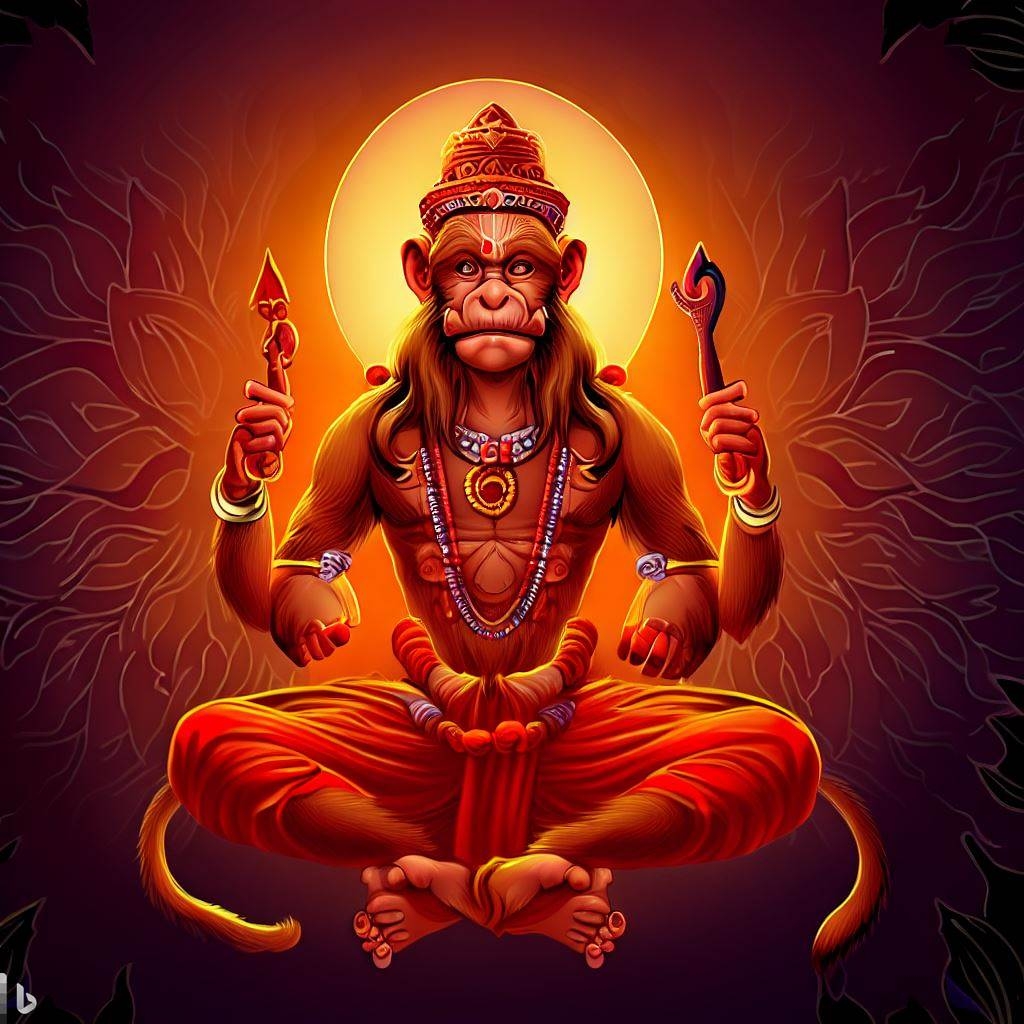 |
The Birth of Hanuman
Hanuman is a vanara, born to Kesari and Anjana. Hanuman is also known as the celestial son of Vayu, the wind-god.His mother, Anjana, was an apsara who was born on earth due to a curse. She was redeemed from this curse upon giving birth to a son. The Valmiki Ramayana states that his father, Kesari, was the son of Brihaspati, the king of a region named Sumeru, located near the kingdom of Kishkindha near Hampi in present-day Vijayanagara district of Karnataka.Anjana is said to have performed intense prayers lasting twelve years to Shiva to bear a child. Pleased with their devotion, Shiva granted them the son they sought.
Eknath's Bhavartha Ramayana states that when Anjana was worshiping Rudra, King Dasharatha of Ayodhya was also performing the ritual of Putrakameshti under the guidance of Sage R̥śyaśr̥ṅga in order to have children. As a result, he received some payasam to be shared by his three wives, leading to the births of Rama, Lakshmana, Bharata, and Shatrughna. By divine ordinance, a kite snatched a fragment of that pudding and dropped it while flying over the forest where Anjana was engaged in worship. Vayu, delivered the falling pudding to the outstretched hands of Anjana, who consumed it. Hanuman was born to her as a result.
Hanuman's Worship Ritual
Hanuman is worshipped as a deity with the ability to gain victory over evil and provide protection. On this festival, devotees of Hanuman celebrate him and seek his protection and blessings. They join in temples to worship him and present religious offerings. In return, the devotees receive prasadam.People who revere him read from Hindu texts like the Hanuman Chalisa and Ramayana.Devotees visit temples and apply a vermillion to their foreheads from Hanuman's murti. According to legend, when Hanuman found Sita applying sinduram to her forehead, he enquired about this custom. She replied that doing so would ensure a long life for her husband, Rama. Hanuman then proceeded to smear his entire body with vermillion, thus ensuring Rama's immortality.
Southern India
In Tamil Nadu and Kerala, Hanuman Jayanti is celebrated on the new moon day in Margali month. Famous Hanuman temples in these states like Nanganallur, Namakkal, Suchindram, Thrikkaviyoor and Alathiyoor celebrate this day with pomp.
In Telangana and Andhra Pradesh, Hanuman Jayanti is celebrated for 41 days, beginning on Chaitra Purnima, and concluding on the tenth day during Krishna Paksha in Vaishaka.
Maharashtra
In Maharashtra, Hanuman Jayanti is celebrated on the full moon day of the Hindu lunar month of Chaitra. A special feature of Hanuman Jayanti is that according to some religious almanacs the birthday of Hanuman falls on the fourteenth day in the dark fortnight of the month of Ashvin, while according to others it falls on the full moon day in the bright fortnight of Chaitra. On this day in a Hanuman temple, spiritual discourses begin at dawn since Hanuman is believed to have been born during sunrise. During the time frame of birth, the spiritual discourse are halted and the offering of food is distributed to everyone.Spiritual discourses are organised in most of the Hindu temples of the region on this day.
Odisha
In Odisha, Pana Sankranti (April 13/14/15) is believed to be the birthday of Hanuman. Devotees visit temples and chant the Hanuman Chalisa throughout the day. Reading the Sundara Kanda book of the Ramayana on this day is also said to be a pious exercise. The day also marks the beginning of the New Year in the traditional Odia Solar Calendar.The festival occurs in the solar Odia calendar (the lunisolar Hindu calendar followed in Odisha) on the first day of the traditional solar month of Meṣa.
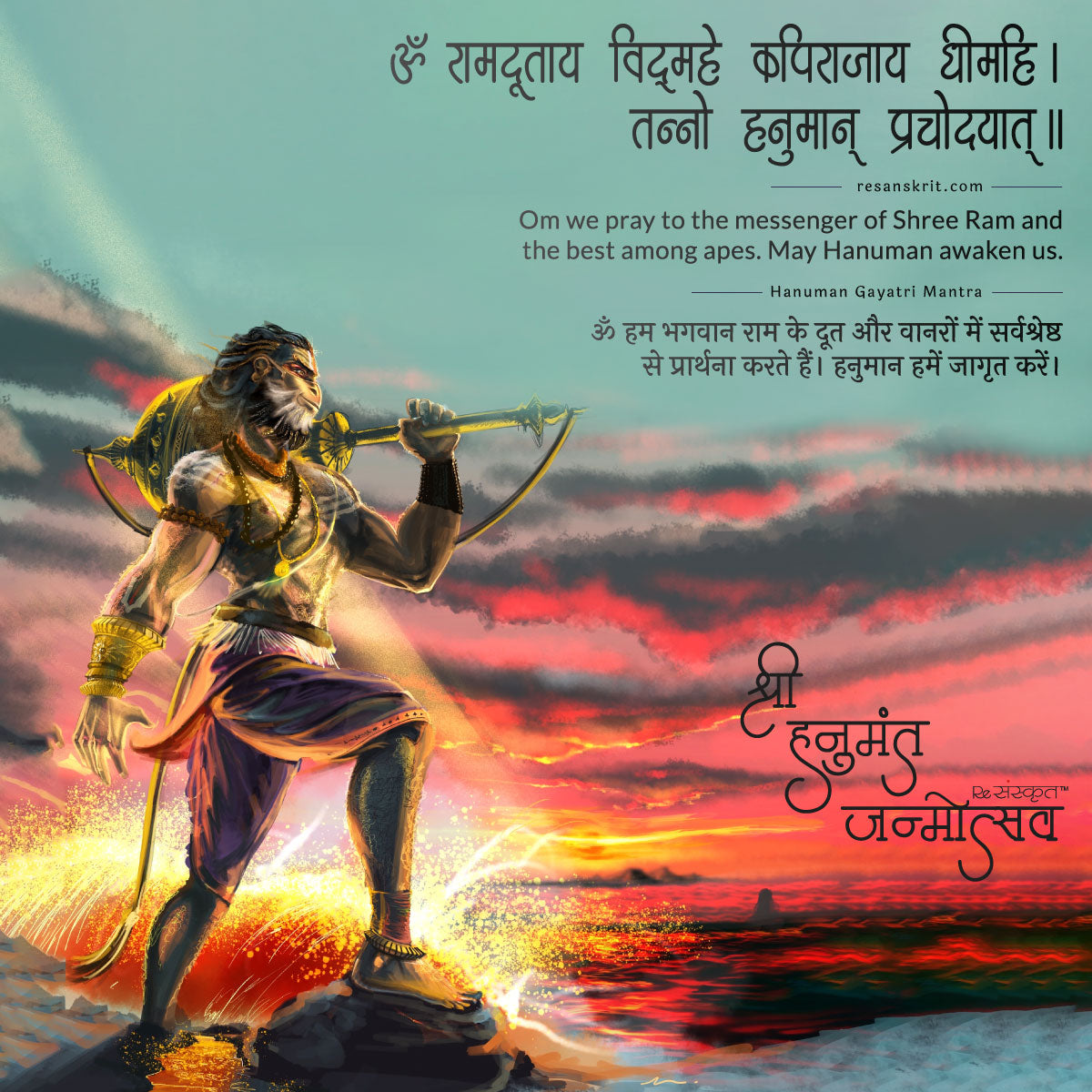 |
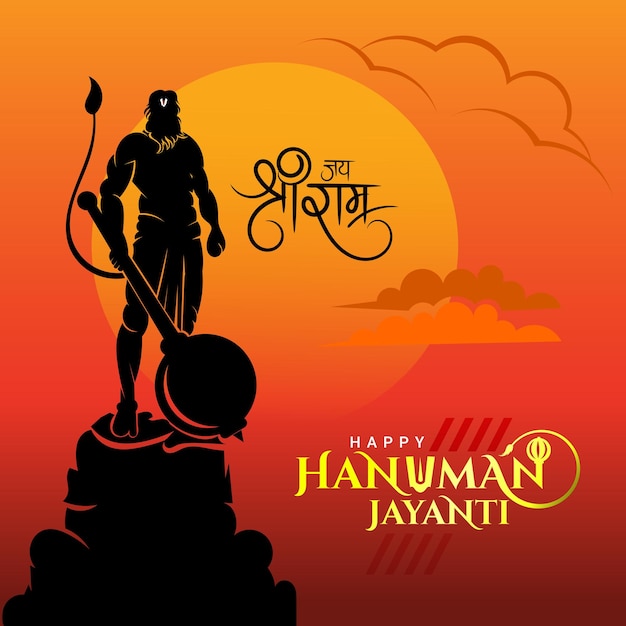 |
Hanuman Jayanti’s Connection with Indian Culture
Hanuman Jayanti is a festival closely connected with Indian culture, carrying profound cultural connotations and spiritual significance.
Hanuman occupies an important place in Indian culture and is considered a symbol of strength, courage, loyalty and wisdom. On the day of Hanuman Jayanti, people express their reverence and gratitude to him through various rituals and celebrations.
This festival embodies the worship and belief in gods and goddesses in Indian culture. Indians believe that Hanuman has extraordinary power and can bless people with safety and success. This belief is deeply rooted in the hearts of the Indian people and has become an integral part of their lives.
At the same time, Hanuman Jayanti also reflects the diversity and richness of Indian culture. During the celebrations, we can see various traditional art forms, such as dance, music, drama, etc., which together show the charm and uniqueness of Indian culture.
In addition, Hanuman Jayanti also promotes the inheritance and development of Indian culture. Through stories and legends passed down from generation to generation, the image and spirit of Hanuman are continued and promoted, allowing future generations to better understand and feel the profoundness of Indian culture.
In short, Hanuman Jayanti is closely related to Indian culture. It is not only a festival, but also an important part of Indian culture, showing the Indian people's respect for gods, love for traditional culture and positive attitude towards life.
Devotional Songs and Prayers for Hanuman Jayanti
Hanuman Jayanti is a special occasion that brings people together to celebrate the divine presence of Hanuman. At the heart of this celebration are the devotional songs and prayers that hold deep significance.
Devotional songs for Hanuman Jayanti are a powerful means of expressing love and devotion towards Hanuman. These songs, often filled with heartfelt lyrics and melodious tunes, touch the soul and evoke a sense of spiritual connection. They transport us to a realm where we can feel the presence of the mighty Hanuman and experience a profound sense of peace and tranquility.
Prayers on Hanuman Jayanti are another important aspect. They are a form of communication with the divine, where we pour out our hearts, seek blessings, and express our gratitude. These prayers can range from simple invocations to elaborate chants, each carrying the weight of our devotion and longing.
The combination of devotional songs and prayers creates an atmosphere of reverence and devotion during Hanuman Jayanti. It allows us to connect with the essence of Hanuman's teachings and the spiritual heritage of India. It is a time when we come together as a community, united in our faith and devotion, to honor and worship this great deity.
In conclusion, devotional songs and prayers play a crucial role in the celebration of Hanuman Jayanti. They are a means of expressing our innermost feelings, deepening our spiritual connection, and experiencing the transformative power of devotion. May these songs and prayers continue to inspire us and fill our hearts with love and devotion for Hanuman.
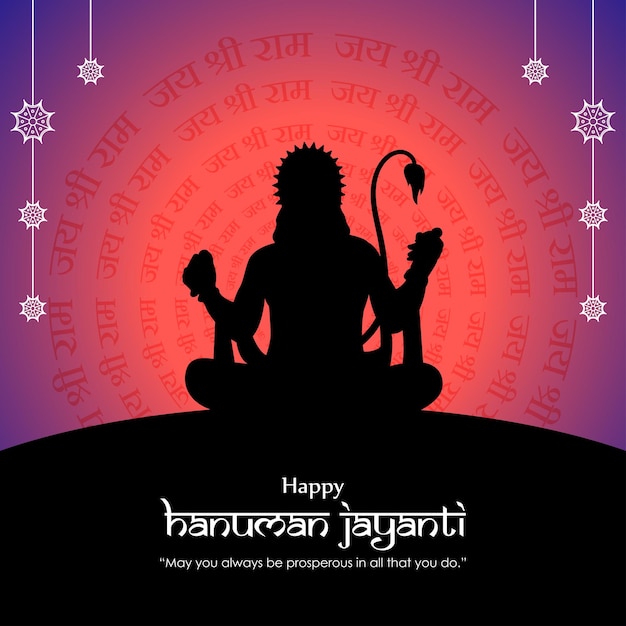 |
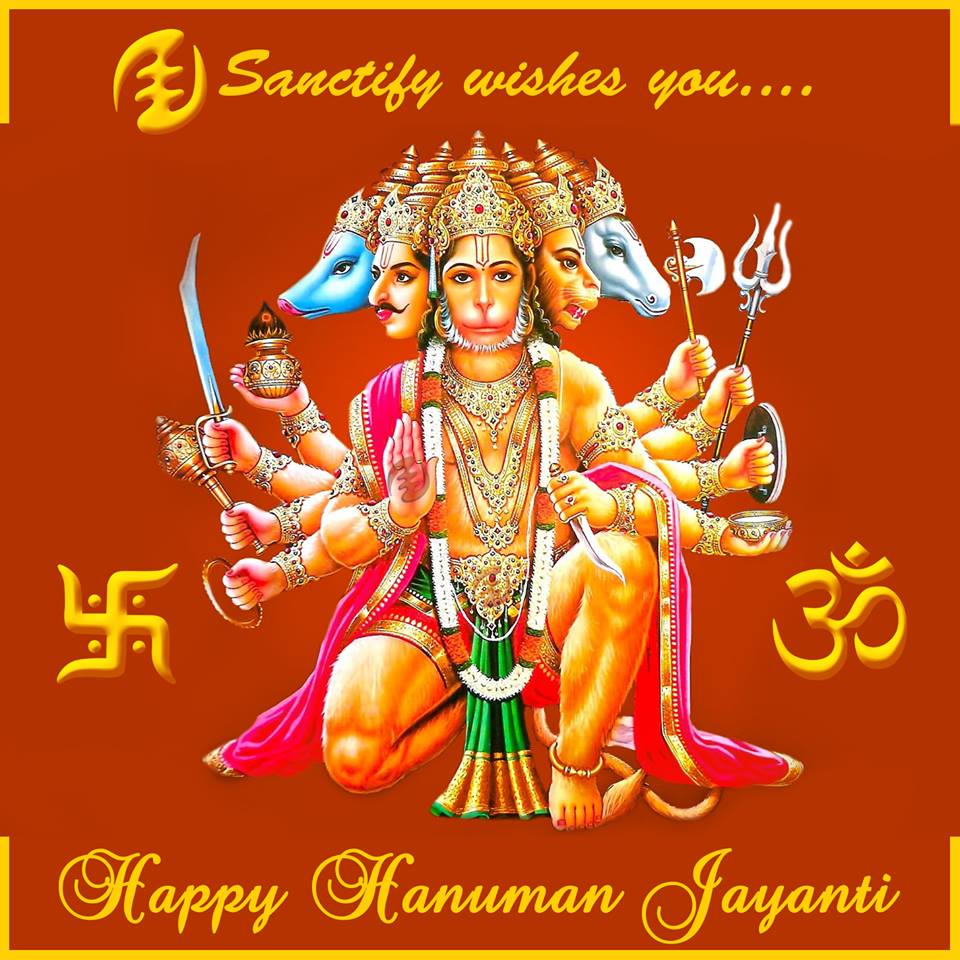 |
Impact of Hanuman Jayanti on Society
Hanuman Jayanti is a festival of great significance in India, which has a profound impact on society in many aspects.
This festival strengthens social cohesion and solidarity. During Hanuman Jayanti, people participate in celebrations and share joy, which strengthens their emotional bonds with each other and brings the entire society closer together.
Hanuman Jayanti also inspires people’s awareness of the inheritance and protection of traditional culture. Through various rituals and celebrations, ancient culture is passed on and promoted, allowing future generations to understand and feel the wisdom and beliefs of their ancestors, thus enhancing their sense of identity and pride in local culture.
At the same time, this festival also promotes social harmony and stability. It provides people with a common spiritual sustenance, allowing them to find a moment of tranquility and solace in their busy lives, relieve stress, reduce conflicts, and create a more harmonious social atmosphere.
In addition, Hanuman Jayanti also provides a certain boost to the economy. The celebrations have driven the development of related industries, such as the sales of handicrafts, religious supplies, etc., injecting vitality into economic growth.
All in all, Hanuman Jayanti’s impact on society was extensive and profound. It not only enriches people's spiritual life, but also plays an important role in social unity, cultural inheritance, harmony and stability, and economic development, becoming an indispensable part of social life.

